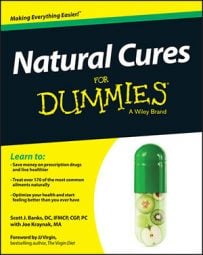in addition to the conventional treatments for hepatitis and at the earliest stages of the disease, use natural cures to prevent the virus from replicating, reduce the severity of the illness, and repair liver damage.
Hepatitis refers to a group of inflammatory diseases of the liver. Symptoms of acute hepatitis include fatigue, vomiting, nausea, fever, loss of appetite, dark urine, yellowing of the skin (jaundice), enlarged and tender liver, and elevated liver enzymes. If you have these symptoms, see your doctor because pharmaceutical approaches for treating hepatitis are often necessary and beneficial.
Note, however, that these treatments usually come with numerous side effects and lack the ability to prevent cirrhosis, further liver damage, and even liver cancer. Here are some suggestions for natural cures:
Start with your diet, which is fundamental in the healing process. Everything you eat, breathe, touch, and smell is detoxified through your liver. If you consume alcohol, stop. Eat unprocessed or minimally processed whole foods in moderation and make sure that most are plants (fruits, vegetables, nuts, and seeds):
Eat cruciferous vegetables — cauliflower, cabbage, cress, bok choy, broccoli, brussels sprouts, and others — many of which have the correct B vitamins, minerals, and sulfur‐based amino acids that the detox process relies heavily on.
Consume green tea and plenty of quality water.
Reduce foods that are toxic to the liver, such as alcohol, refined sugar, processed carbohydrates, fried foods, caffeine, trans fatty acids, and unnecessary medications.
Eliminate or severely reduce consumption of meat and dairy. If you do have meat, make sure it’s of the highest quality available from pastured animals raised organically and fed non‐GMO products.
Look for dairy alternatives, such as nut milk, sheep, or goat sources and choose products from only free‐range, pastured, well‐cared‐for animals.
You can also support your liver’s recovery with one or more of the following supplements (the more the better) at the recommended dosages:
| Supplement | Dosage |
|---|---|
| Vitamin C (mineral ascorbates) | 1 to 2 g three times daily for several weeks |
| Vitamin E (mixed tocopherols) | 400 IU per day |
| Selenium | 200 mcg per day |
| Alpha‐lipoic acid | 300 mg twice daily |
| Vitamin K2 | 45 mg daily |
| Thiamine | 100 mg daily |
| Phosphatidylcholine | 1.8 g daily for hepatitis C (not hepatitis B) |
| Acetyl‐L‐carnitine | 2 g daily on an empty stomach |
| Zinc | 20 mg daily |
| Vitamins B12 (methylcobalamin, sublingual fast‐dissolving tablet) and folate (5‐MTHF) | 5,000 mcg B12 and 2,000 mcg folate one to two times daily |
| Licorice root (Glycyrrhiza glabra) | 500 mg three times daily (Note: Monitor blood pressure; at high doses, licorice root may elevate blood pressure.) |
| Turmeric (Currcuma longa) | 500 mg three times daily |
| Green drinks (high quality) | 1 or more daily |
You may take any or all of these supplements for the rest of your life. In fact, if you have hepatitis, it's recommended.
Celiac disease and nonceliac gluten sensitivity have been associated with inflammatory liver disorders, so get tested for gluten sensitivity.

